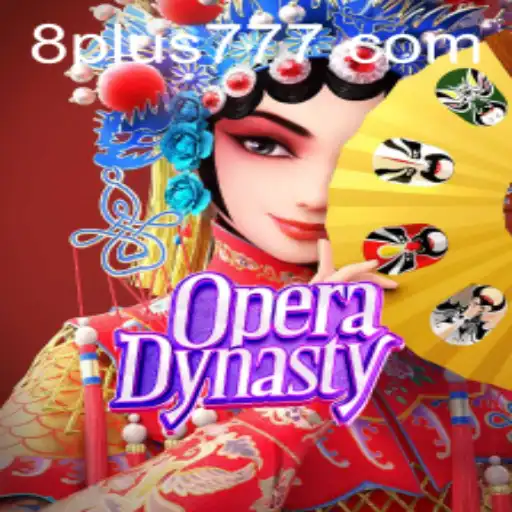
plus777 - Exploring the Depths of Jueteng: Culture, Politics, and Economics
Dive into the intricate world of jueteng in the Philippines, exploring its deep cultural roots, political intersections, and economic implications.

Understanding Jueteng: A Deep Dive into the Controversial Game
Jueteng is a popular numbers game in the Philippines with a history rooted deeply in local culture and society. Despite its illegal status, jueteng continues to flourish across various regions, often becoming intertwined with politics and local economies. Understanding the ins and outs of this game is essential to grasp its continued influence and persistence in Filipino life.
The Origins of Jueteng
The game of jueteng reportedly traces its roots back to the Spanish colonial era. It is a form of lottery game that has been adapted and modified over the years. The term "jueteng" itself is believed to originate from the colloquial term in Chinese dialects, referring to "flower and baskets" or "betting on flowers," indicating gambling activities and practices. Over time, the game was embraced by many local communities, despite repeated efforts by authorities to curb its spread.
How Jueteng Works
At its core, jueteng is a simple numbers game. Typically, bettors choose a set of numbers between 1 to 37, placing bets with local "kubrador" or collectors who traverse communities gathering stakes. Winners are declared based on a random draw, with prizes going to those who guessed the winning combination. The simplicity of its rules adds to jueteng's widespread appeal, making it accessible to a broad spectrum of participants regardless of age or economic status.
Furthermore, jueteng is distinct from other gambling systems as it often relies on local networks, keeping operations under the radar of law enforcement. This grassroots approach not only makes it challenging to regulate but also fortifies its place within community dynamics.
Why Jueteng Persists
One of the primary reasons jueteng has persisted over the years is its deep socioeconomic roots. For many, it offers a form of hope, a chance to turn a small bet into significant winnings. In communities where economic opportunities are limited, and poverty is prevalent, jueteng acts as a beacon of aspiration, albeit an illegal and sometimes perilous one. Additionally, its entrenched position in local cultures ensures its survival; for many, it is less about gambling and more about tradition and community involvement.
Political Intersections
Jueteng has also found a distinct place in the political landscape of the Philippines. It is widely believed that politicians turn a blind eye to jueteng operations in exchange for political support. It's seen as an unspoken agreement that jueteng financiers offer monetary backing to political campaigns, while politicians, in return, ensure limited interference in jueteng activities in their regions.
These intersections make it exceedingly challenging for any government to effectively purge jueteng from society. Efforts to do so might prove politically damaging, with local leaders often embedded in powerful alliances with gambling operators. This dynamic creates an intricate power play where jueteng is both a local issue and a political commodity.
Economic Implications
Another layer adding to the complexity of jueteng is its economic implications. The game offers a unique ecosystem where money circulates locally. Collectors, operators, and even local businesses benefit from the additional cash flow generated by jueteng activities. In rural areas, where official economies might be sluggish, such supplementary income sources become crucial for survival.
However, the downside is undeniable. While it generates economic activity, it also diverts considerable resources away from more productive uses and perpetuates a cycle of poverty and dependency among participants who see it as their ticket to fortune.
Efforts for Regulation
Over the years, various administrations have attempted to regulate or eradicate jueteng. The introduction of the Philippine Charity Sweepstakes Office (PCSO) and its "legal" numbers game variants was an initial effort to provide an alternative. Yet, for many bettors, the allure of jueteng, deeply intertwined with local traditions and patronage systems, continues to eclipse these alternatives.
Authorities face the difficult task of creating a trustable and corruption-free gambling system that offers similar community integration without the regulatory difficulties. Additionally, addressing underlying social factors such as unemployment and poverty is necessary for any long-term solution.
The Role of Modern Technology
In recent times, modern technology has begun to influence traditional gambling activities, jueteng included. The integration of online platforms and digital payment solutions offers new dimensions to gambling, presenting both challenges and opportunities for regulation. While technology could offer an avenue for more transparent operations, it could equally provide cover for illegal numbers games to proliferate further, making enforcement even more challenging.
With keywords like plus777, digital games and platforms could redefine personal engagement with gambling systems, possibly impacting traditional jueteng circles. Observing this evolution closely will provide insights into how the game adjusts with technological advances.
Jueteng in Popular Culture
Jueteng's impact extends beyond mere gambling; it has carved a niche within popular culture. Represented in films, television, and literature, it reflects broad social issues and personal narratives across Filipino society. For many, jueteng is not simply a game; it is a cultural phenomenon captured in the national consciousness through various artistic expressions.
This representation serves both as critique and chronicle, examining the complexities of life impacted by socio-economic realities and systemic dilemmas. Jueteng narratives often highlight the individual and collective struggles faced by those entrapped by economic hardship, creating a profound backdrop against which personal stories unfold.
Conclusion
Understanding jueteng requires more than recognizing it as a mere gamble. It symbolizes a myriad of issues, from socioeconomic challenges to political intrigues and cultural paradigms. As the Philippines continues to evolve, so too will the fate of jueteng, reflecting broader changes within the society.
Whether through evolving policies, economic shifts, or cultural transformations, the story of jueteng remains a testament to the complexity of a nation's interplay between tradition and progress.


GOLD VIP
Minimum deposit: ₱1,500
- ✅ 150% bonus on all deposits
- ✅ Priority withdrawal in 1 minute
- ✅ 10% cashback weekly
- ✅ VIP support 24/7
- ✅ Higher betting limits
PLATINUM VIP
Minimum deposit: ₱6,000
- ✅ 200% bonus + all Gold benefits
- ✅ Instant withdrawal 24/7
- ✅ 15% cashback weekly
- ✅ Exclusive VIP table in casino
- ✅ Special event invitations
DIAMOND VIP
Minimum deposit: ₱30,000
- ✅ 300% bonus + all previous benefits
- ✅ Dedicated personal manager
- ✅ 20% cashback weekly
- ✅ Unlimited withdrawal limits
- ✅ Exclusive trips and gifts
🚀 Register NOW and Get ₱15,000 Bonus!
⏰ LIMITED TIME OFFER! Join over 1.2 million players who have already discovered why plus777 is the #1 betting platform in the Philippines. Registration in 30 seconds, first withdrawal in 2 minutes!
💬 What our players say
"Best platform I've ever used! GCash withdrawal in 2 minutes, amazing support!"
- Carlos M., Manila ⭐⭐⭐⭐⭐
"Won ₱45,000 on Gates of Olympus! They paid everything correctly via GCash."
- Ana L., Cebu ⭐⭐⭐⭐⭐
"VIP system is amazing! I have a personal manager and cashback every week."
- Roberto S., Davao ⭐⭐⭐⭐⭐
PAGCOR License
SSL 256-bit
eCOGRA
BSP Approved





